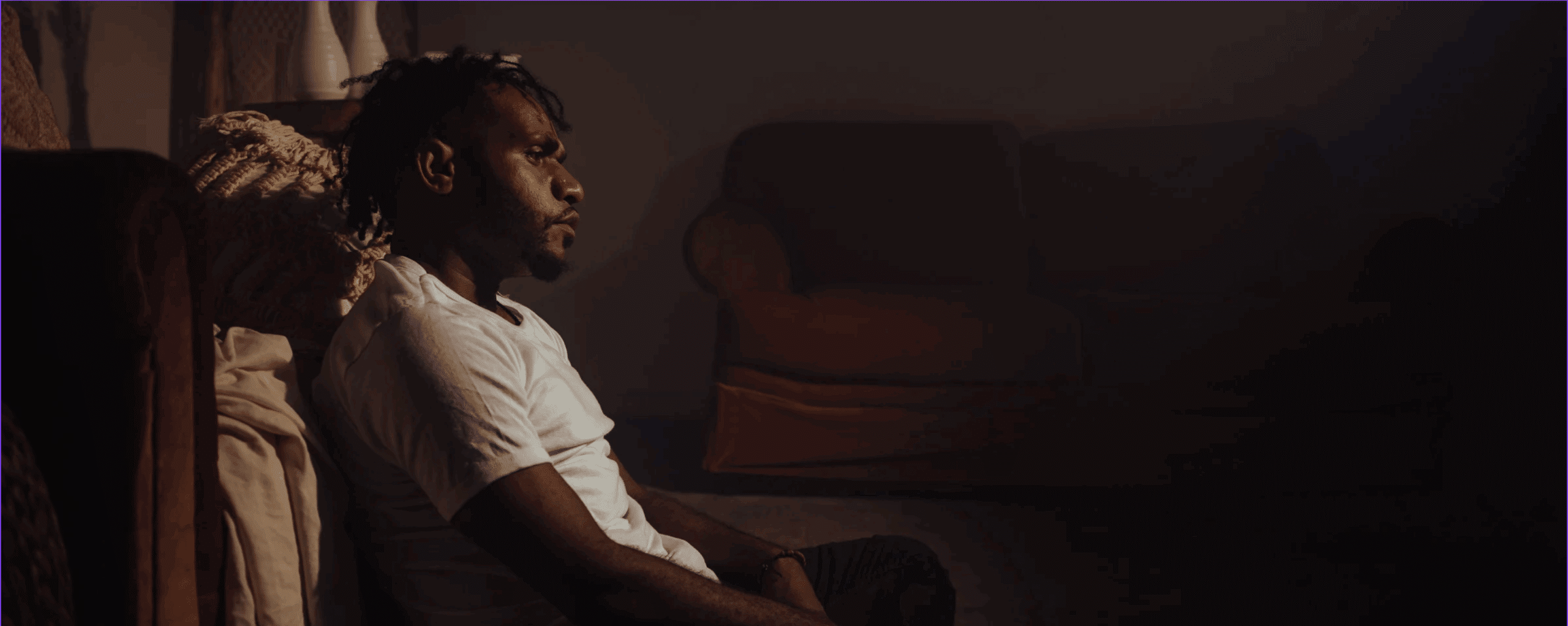One of the most common questions we hear is: how long does an anxiety disorder last? Whether you’ve recently been diagnosed or have been battling persistent symptoms for a while, you’re likely searching for answers.
The truth is, anxiety disorders—and mental health conditions in general—don’t follow a one-size-fits-all path. Each person’s experience with anxiety is unique, and so is the duration of their symptoms. Understanding how long anxiety can last requires a closer look at several key factors. For instance, is it possible for anxiety to go away on its own? And more importantly, what steps can you take to reclaim your life from anxiety’s grip?
Let’s explore the timeline of anxiety disorders and what influences recovery.
What Are Anxiety Disorders?
Anxiety disorders are a group of mental health conditions that share similar symptoms, including overwhelming fear, panic, dread, and helplessness. These disorders can significantly disrupt daily life, making even routine activities feel difficult or exhausting.
While anxiety primarily affects the mind, it also takes a toll on the body. Physical symptoms like nausea, dizziness, muscle tension, and fatigue are common. And no one is immune—anxiety disorders affect people of all ages, races, and backgrounds.
It’s important to understand that anxiety doesn’t typically resolve on its own. Like any other medical condition, it requires treatment and support. If you’ve been feeling persistently anxious, receiving a formal diagnosis can be the first step toward healing.
Normal Anxiety vs Anxiety Disorders
So, how do you tell the difference between everyday anxiety and an anxiety disorder?
Occasional anxiety is a normal part of life. It might arise before a big test, during a job interview, or when facing a tough decision. But when anxiety becomes chronic, persistent, or disproportionate to the situation—and begins interfering with daily life—it may be part of a larger anxiety disorder.
Persistent anxiety is often rooted in a combination of biological, psychological, and environmental factors. It’s not a personal failing or something you’ve done wrong. Rather, it’s a result of chemical imbalances in the brain and life circumstances that contribute to your emotional state.
The good news? You don’t have to live like this forever. With the right treatment and support, anxiety disorders can improve—and in many cases, be managed or even resolved. There is a path forward, and you’re not alone in walking it.
How Long Does an Anxiety Disorder Last?
It’s understandable to wonder, how long does anxiety last? If you have an anxiety disorder, it won’t simply go away because it’s the result of a number of combined factors. These determine every element of your specific anxiety disorder, including its duration and intensity. Notably, no two people have the same experience of anxiety because a mental health disorder is unique to the individual. Anxiety disorders have risk factors that contribute to their development. Below are some of the root contributors to whether you develop anxiety or not:
- Generics
- Family history of anxiety disorders
- History of trauma
- Low self-esteem
- Environmental factors
- Substance abuse history
- Co-occurring psychiatric issues (especially major depressive disorder)
- Developmental challenges (including in childhood)
Overall, there is no one answer to why anxiety develops, nor how long it will last. But we do know treatment helps heal anxiety.
Can Anxiety Be Cured?
Although the anxiety disorder timeline is different for everyone, can anxiety disappear? As noted, an anxiety disorder won’t just disappear without cause. It takes intentional work to unroot and heal anxiety by looking at the reasons for it and practicing healthy coping methods. That said, curing anxiety is certainly possible. Both anxiety as a symptom and anxiety disorders can be treated and improved. We utilize the proven combination of traditional behavioral therapy with holistic activities and medication. Altogether, this anxiety healing approach addresses the whole body impact of anxiety. Plus, medication can significantly improve the severity of symptoms to provide lasting relief.
Will Anxiety Go Away on Its Own?
So, will anxiety go away? The question needs further clarification. If asking whether anxiety disorders will go away on their own, it is highly unlikely. Mental health disorders are created through an unknown combination of factors determining their onset. Because a number of elements combine, including chemical imbalances in the brain, mental disorders don’t solve themselves with time.
However, when asking if anxiety disorders will go away with help, the answer is more positive! Treatment significantly helps to improve anxiety by providing strong behavioral techniques for managing symptoms. Through treatment, you can develop a sense of power over your disorder rather than being controlled by it. While you’ll still live with an anxiety disorder, you can live without it disrupting your life and damaging your wellness.
Self-Assessment: Am I Addicted?
"*" indicates required fields
Contact Us
Ready to Get Help? Get in Touch Today.
"*" indicates required fields
List of Anxiety Disorders
As mentioned earlier, there are multiple different anxiety disorder classifications. While they share many common symptoms, there are certain distinctions. If you don’t have a diagnosis, it can be difficult to really understand your condition. At Vogue Recovery, our licensed counselors and psychiatrists can provide a diagnosis to give you a clearer picture. This will help you receive tailored treatment and peer support, and be eligible to receive medication.
General Anxiety Disorder (GAD)
Generalized anxiety disorder, or GAD, is what most people think of when they talk about anxiety as a condition. GAD is when you experience chronic, persistent anxiety symptoms, like fear, dread, and overwhelm. Notably, the anxiety you feel in the moment seems great and insurmountable. However, one characteristic of anxiety disorders is how the symptoms are inconsistent with reality, making you believe it’s much worse than it is. There are a number of areas in which individuals often experience the worst anxiety, like family, health, the future, and safety. If your anxiety is frequent and seemingly without end, it’s not just occasional stress. You likely have a generalized anxiety disorder like GAD.
Panic Disorder
Panic disorder is the official name for the condition where individuals experience panic attacks. While an estimated 11 percent of Americans will have a panic attack at some point, panic disorder is different. That is to say, just because you experience a panic attack doesn’t mean you have panic disorder. Instead, this anxiety condition has the symptom of frequent, unanticipated panic attacks. It means your body’s response to stress, overwhelm, and fear is panic attacks. Living with panic disorder is understandably frightening. Although panic attacks do not put you in danger, it feels like you’re unsafe while they’re happening. It’s important to treat panic disorder to experience a high quality of life without fear of panic attacks at dangerous moments.
Social Anxiety Disorder (SAD)
Social anxiety disorder, or SAD, affects millions of people, including many youths and young adults. It is estimated that roughly 12 percent of Americans develop social anxiety disorder. Markedly, this condition is characterized by extreme anxiousness, fear, and sick feelings in certain social or performative settings. Unquestionably, SAD brings difficulty to everyday tasks and interactions, let alone bigger and more important situations. A tragic but common response to social anxiety is isolation. In the most severe cases, individuals structure their lives in a way that prevents them from having outside interactions. But limiting your life to “safe” parameters is not a solution. Instead, treatment for social anxiety disorder will help you find lasting relief.
Specific Phobias
Finally, also under the heading of anxiety disorders are phobias. Individuals can have a diverse range of phobias. Regardless of their specific fears, all phobias are anxiety disorders. Simply put, a phobia is an irrational fear of an object, experience, or situation that causes you unhealthy distress. Yet, phobias do have roots that can be unpacked and understood. Instead of avoiding your phobias, treatment involves safe and supportive fear-facing, like in exposure therapy. We provide talk therapy to help our guests take control of their phobias.
Professional Treatment Can Help with Anxiety Disorders
Having an anxiety disorder can be debilitating, as all elements of your personal and professional life may deteriorate. No person should be expected to live with poor mental health. Fortunately, professional treatment offers proven benefits and improvements to mental disorders like anxiety. Through a combination of traditional therapy, holistic treatment, and anti-anxiety medication, we’ll help you reduce your symptoms. Once the voices in your head are silenced and your system is not battling fear and stress, you’ll be able to focus on returning to yourself. If reduced symptoms and power over your anxiety sound like something you want, please let us help!
Managing Anxiety After Treatment
Treatment for your anxiety disorder will give you the tools and knowledge you need to manage your anxiety independently. Thus, once you graduate from our mental health programming, you can continue to utilize the resources and therapies you’ve connected with. And know that you won’t be a stranger to Vogue Recovery after your treatment. Once you’re a part of the family, you are a member for life! We will continue to provide support, aid, and answers to any of your questions. Additionally, you can remain on your prescription medication for anxiety. It is important to only use the medication prescribed by your doctor, even after you leave treatment. Never buy anxiety medications online or outside of a U.S. pharmacy. If you feel any temptation to misuse medication arises, please reach out to us.
Anxiety Disorder Treatment Near Me
When looking for a professional mental health counseling provider, there are a few things you want to keep in mind. Firstly, they should be an accredited mental health facility with licensed staff like therapists, counselors, and social workers. Additionally, the mixture of traditional and holistic treatment is the best combo to treat your whole body. Thus, we recommend working with a treatment center that will help you restore your entire wellness. You can find what you’re looking for at Vogue Recovery. We offer centers around the United States that cater to a wide range of mental health concerns.
You came here wondering, How long does anxiety disorder last? You will remain trapped in your illness until you find healthy ways to overcome your symptoms. But you can reach out to our admissions team right now to start the process of putting an end to your anxiety!
Questions about treatment options?
Our admissions team is available 24/7 to listen to your story and help you get started with the next steps.
Vogue Recovery Editorial Staff
Latest posts by Vogue Recovery Editorial Staff (see all)
- Healing Together: How to Get a Loved One into Rehab - July 31, 2025
- Everything You Need to Know About Using Insurance for Rehab - July 31, 2025













